- Home
- Patrick Robinson
The Lion of Sabray Page 20
The Lion of Sabray Read online
Page 20
As far as they were concerned, Gulab had to pay for these “crimes” with his life, and that included all of his close relations. With enormous sadness, he finally accepted he would have to leave Sabray, his family’s home for so many generations.
There were several family members to whom he could entrust the house—if necessary, for years—until it was safe for the family to return. But meanwhile, Gulab needed to find somewhere new where they could live away from the spying eyes of the Taliban army.
This was thoroughly awkward for Gulab, as he was now an obvious friend and ally of so many Americans and an “enemy” of a section of his own Pashtun race. Looking back at the great spread of Afghanistan’s history, he may very well be the only Pashtun tribesman ever to find himself in such a predicament.
But he had tried to obey the wishes of Allah, the one and only God, and at no time did he believe he had any choice in the matter. And the great majority of his people in the village accepted that and respected his actions. However, it was not them he was worried about.
It was the minority: Pashtun tribesmen who believed in the warlike rantings of men like Ahmad Shah, who were not scholars, not Imams, and not devoted followers of Islam’s many creeds.
In his heart, Gulab believed that everything would be taken care of by the American military. But this was more complicated than he fully understood. For instance, the mere question of a reward for what he had done for Marcus should have been simple.
But tribal law says any such reward for acts of valor or chivalry must be bestowed upon everyone in the village. Therefore, a simple reward—money or gifts to the family—was forbidden. The Americans were faced with a thousand technical hitches, because a gift to everyone needed to be something like a new road into the village, or perhaps a generator to bring them their first electricity.
And that meant contractors, capital expenditure, machinery being airlifted in, a labor force, and constant discussions with local tribal councils. The generator would mean deliveries of diesel fuel into a place where no truck could ever reach.
The Americans tried to achieve something, and they did repair much of the village after the Taliban onslaught the night that Gulab and Marcus left. But the Taliban tried to block the US military at every turn, leveling accusations of theft and villainy upon the people of Sabray wherever they could. In a sense, it was all hopeless, which in effect left Gulab and his family out in the cold—in the gravest danger in their own village home.
The American military did make it possible for him to do some work for it, but this entailed being away for weeks at a time. Finally, Gulab accepted that he would have to evacuate and establish a new residence. The glowering presence of Shah’s Taliban army around Sabray was just too overwhelming.
He made the journey to Asadabad, across the mountain. No word from Marcus since they’d parted. The Navy SEAL was on the other side of the world now, eight thousand miles away, in that Texas place where there’s only one star in the sky.
Judging by his injuries, Marcus was not likely to remain in the military any longer. And although Gulab realized he might be gone forever, he still kept asking the Americans for information about him. But they never revealed anything to him.
The city of Asadabad was marginally safer. It’s the capital of Kunar Province, located close to Pakistan’s northwestern border. It is built in a valley at the confluence of the two rivers, the Pech and the Kunar, right between two massive escarpments.
Its strength is Camp Wright, a heavily armed US forward operating base, within a couple of miles of the town. It stands guard over the notorious smuggling and insurgent freeway known as the Nawa Pass, the next border-crossing point into Pakistan north of the Khyber Pass.
Camp Wright, a center of military intelligence, is the main base of operations for both the CIA and US Special Ops Forces in the mountainous province.
All of which means that the US security troops keep a very tight watch on the fifty thousand residents of Asadabad. There are constant US patrols driving through its dusty streets. Much of the city is surrounded by high defensive concrete walls, with American observers positioned on the ramparts.
Gulab took a room in Asadabad while he searched for a new home. He had money, but not enough to not work, and went first to evening prayers at the mosque close to the bazaar. There he asked for guidance, and the following morning, he found an apartment in a secure, larger central building and took a lease on it.
From there Gulab made his way back to Sabray, walking much of the way but being driven over the middle five miles by a friend who owned a car. It was growing dark by the time he arrived, but his family and many friends were pleased to see him, and even more pleased that he had found a solution to the dangers at home.
He instructed the family to begin packing. At evening prayers, he talked at length to the Imam, and when darkness fell over the Hindu Kush, he stared at the skies above the mosque and prayed that Allah knew that he, Mohammed Gulab, had done His bidding, and that the American was safe.
Looking back, it was the saddest of evenings as they gathered outside the family home and said their final good-byes. No one knew when they would be able to return, for the Taliban army was still camped in the hills above Sabray, and in the absence of Marcus, their target was this one house now being vacated.
They carried their few possessions in shoulder bags, and Gulab’s wife wept as she tried to comfort the four children. They set off down the hill, all alone, leaving behind every single thing they had ever known.
Like all field commanders in these mountains, Gulab realized that darkness was their friend:
Just for the moment. The cloudy skies obscured the moon, and I hoped it would remain that way, since it was almost full, and at these heights, in this clear air, its light was often almost as bright as the sun.
We tried to walk in silence, since we all understood the Taliban would kill us any time we were located. A thousand years of survival instinct had ensured our footsteps were soft, our heartbeats low, and our breathing shallow. We carried no lights, and we made no sound, even though I knew my wife’s heart was slowly being broken by this dark and cruel journey.
There were eight miles ahead of us, and we dared not stop. The night was bitterly cold, and the children marched with blankets wrapped around their shoulders. My wife walked bravely behind me, guarding them, and occasionally touching my shoulder in this blackest of nights.
Every instinct I had was concentrated on the land around us. As we made our way down this part of the mountain, the trees grew more dense, and I strained my hearing for the sounds which would betray an enemy: the snap of a twig, the near-silent crush of leaves beneath encroaching footfalls, the whispered commands of a troop leader.
In my right hand, I carried the family Kalashnikov assault rifle, a loaded thirty-round magazine slammed into place, safety catch off. In my pocket, I had two more magazines, and I walked on hair-trigger alert.
I understood there were some adequately competent troops in Ahmad Shah’s army, but they were all inexperienced, and, thanks to Marcus and his men, many of them were already dead. If I’m attacked this night, I thought, I’m ready.
And if any of Shah’s men should try to make a name for themselves, they should bear in mind I’ve been trained for battle and ambush since I was eight years old. They should bear in mind just one fact: I’m still alive, and that was not by luck alone.
Yes, if there are enough of them, they may succeed in killing us. But I’ll go to meet my Creator with my arms around my wife and children, and with my courage high. I’ll take many Taliban with me, and I’ll do so in the name of Allah, the Almighty, the one and only God.
I’d have given a lot to have Marcus with us, even though we’d probably be safe so long as the moon stayed hidden. And so we walked on down the mountain, slowly covering the distance, a steady four-hour march until the little ones really could go no farther.
It was daylight when we finally arrived, and the children were
exhausted and fell asleep on those big Afghan cushions I’d sent in a couple of days previously. My wife too was extremely tired but insisted on going to the market for supplies while I stood guard.
When she returned, Gulab made a recce of the surrounding area, searching for the most vulnerable spots from where an attack might come. For the moment, he was the lone sentry, and he would remain on duty at his post for most of each night, his AK-47 primed and loaded. It was a habit he would never lose.
It was only a week since he had watched Marcus fly away. The American was in Texas by now and probably not suffering any disruptions. Gulab kept thinking he would be in touch, but there was nothing. No news, no communication.
Each day, when he walked in the morning in Asadabad, he stopped to talk to US troops, asking if they could put him in contact with his former houseguest, but no one could. Gulab had the impression they wanted to be rid of him. And, in a way, he understood that—an armed Afghan tribesman in native dress trying to get in touch with a US Special Forces operator, recently wounded, after a mountain battle with the Taliban army.
It was an unusual situation. And Gulab was running into a constant brick wall of silence. Equally, he had no idea how Marcus could find him, since he had no address or phone number, and was gone from the village.
It seemed they would never see each other again. And if the Taliban ever got into the surroundings of the Asadabad residence, Gulab might not survive. All for a foreign stranger. Only the will of Allah now stood before him as any kind of a reason. But he trusted in Allah.
The full extent of the personal danger was revealed when, six months after Marcus had left, Hajid Moresaleem, one of the village elders, was shot in the chest while he was at prayer in his home. His “crime” was having befriended the American.
And they also came for Gulab.
“One year later,” Gulab says, “soon after I left Asadabad on a journey to Tharara, my car was ambushed by the Taliban. They shot the driver as we passed, but the vehicle ran on, and this gave me the chance to break out and race for cover. I had my AK-47 with me, and I made my stand among some rocks, well concealed, my rifle loaded. For some reason, they refrained from following up their initial attack. Sensible move. I’d probably have killed them all.”
For Marcus’s part, he was haunted by the scene of leaving Gulab behind on the tarmac. It stayed with him for many, many months.
Marcus went to endless trouble to find him, made inquiries all over the place, tried to pass messages, and searched through data. He made call after call, talked to returning friends, anything he could to locate Mohammed Gulab. But there was nothing.
And then in the fall of 2006, Marcus was redeployed with SEAL Team Five to another tour of duty in Iraq, where he was wounded again, this time by a shot in the arm. He didn’t return to the United States until the following year, but injuries he had suffered in that June 2005 battle against the Taliban had finally done him in, and he was compelled to retire as a Navy SEAL.
There was a lot of stuff that still hurt, but it was the vertebrae in his back that would forever keep him off active duty. In the months and years to come, Marcus would have twenty operations, and his back still aches.
He could have stayed in the navy. Everyone was great to him. But in the same way that he had never been interested in serving in the surface fleet, he never could have been content at a desk job, even in the command centers of the teams. Even in planning and strategy.
Petty Officer Luttrell joined for the blood and thunder of combat. He’s a SEAL, not a tactician, although he probably could have done that. But his heart wasn’t in it. And it was the second saddest day of his life when he finally walked out of SPECWARCOM for the last time.
He never stopped searching and thinking about Gulab, but the years 2005 to 2007 were packed with responsibilities and obligations, including all the medical procedures and the publication of Lone Survivor. He hardly had time to sit down and take stock of his life.
Marcus continued to seek news of Gulab from fellow SEALs who were near where he heard Gulab might be, but there continued to be no trace of him. Strangely, it was not much different for Gulab. One group of US guards on one of the base camps told Gulab that his American buddy had walked out onto the mountain and committed suicide.
That was when he knew Marcus was alive, because he knew the SEAL would never kill himself. Thus, separated by eight thousand miles of ocean, jungle, and desert, each man conducted his search, one for the other, and got absolutely nowhere.
Finally, a family friend of the Texas beauty who would become Marcus’s wife told him he’d found Gulab. He did not wish to be identified, which was surprising, since he’s just about the least shy and retiring US Special Forces commander you could meet: a big, boisterous Green Beret named Joe, who’d located Gulab in Asadabad. He also arranged a cell phone hookup so they could speak—as ever, without understanding one word of what the other was saying, but, in another sense, understanding everything.
This all went on for several months while Marcus tried to find a way to get Gulab into the United States for a visit. For a while, this seemed impossible—the visitor being a full-blooded Afghan tribesman; a devoted Islamist who had fought jihad; a man never seen in Western clothes, only tribal dress, and rarely without his Kalashnikov. Add to that his lack of a birth certificate, never mind a passport, and, indeed, the lack of a birthday.
At first, about seven officials in US Immigration almost went into cardiac arrest. This was not, after all, what you might call orthodox. But Marcus marshaled his Texan network and started a process to have Mohammed Gulab welcomed to the United States. It would take a while, but in the end he “got by with a little help from his friends.” Marcus and his friends and family pulled all the strings they could to finally persuade the authorities that Mr. Mohammed Gulab posed no danger to anyone and was indeed a worthy person to visit these golden shores.
Also in 2010, as Marcus was working on bringing Gulab to America, he was reintroduced to another person who played a critical role in his rescue. Marcus was working on his new venture, the Lone Survivor Foundation, the mission of which is to build or acquire comfortable retreat centers in beautiful settings for our wounded service members and their families—places where they may restore their lives, and rebuild their hopes and dreams for the future. Help with the transition to civilian life is offered, plus support and therapeutic expertise, and it comes from people who understand the enormous toll that combat action and overseas deployment can take on a family. Marcus sees the foundation being there for those brave men and women who built a career on sacrifice, dedication, courage, and loyalty, but who suddenly find themselves perhaps in a debilitating personal transformation from life-changing wounds, both physical and mental. The foundation offers assistance in putting that everlasting anguish into context, leaving room in the families for normal life, and for love and hope to flourish once more.
That summer, a fund-raiser for the foundation was held in, of all places, the gigantic parking lot at Minute Maid Park in Houston, home of the Houston Astros baseball team. The main event was a reunion for Marcus, but the military men who helped organize it kept him at arm’s length, which he should have known was a bit suspect.
As it happened, they staged one of the greatest shocks of his life, and he’s had a few. Right across the city, swooping low, was the unmistakable shape of a twin-turboshaft Sikorsky HH-60 Pave Hawk clattering across the downtown area. It circled and then dropped down toward a plainly designated landing zone, right there in the parking lot. The gathered crowd clapped as it landed, and Marcus watched the pilot climb out and meet the reception committee. They beckoned him to join them, and then he was introduced. Someone said, “Marcus, I’d like you to meet Lieutenant-Colonel Jeff Peterson—‘Spanky’ to his buddies.”
The former SEAL just stood and stared at him, this sensational rescue pilot to whom he owed his life after that death-defying landing in the opium field on that war-torn Afghan night. Marcus did
n’t even recognize him, but the colonel had seen a few pictures.
He just grinned and said, “Hi, Marcus, how you doing?”
Marcus opened his arms and hugged the pilot “because I didn’t have any words to tell him what he meant to me,” he said later. “How profoundly grateful I was, and how my heart rate had hit about seven thousand revs per minute as he brought that helicopter down, in a deafening feat of flying, just inches from the cliff face, less from the terrifying drop on the other side.”
Once Marcus had composed himself, the colonel showed him the big Pave Hawk he had piloted across downtown Houston, and he pointed out the repainted marks and little dents behind the cockpit.
“That’s where they hit us, buddy,” he said. “Never stopped us, though.”
“You mean this is the actual helo that carried me and Gulab out of there?” Marcus asked in astonishment.
“This is the one,” said Spanky. “We thought you might like to see it.”
“If I think about it,” Marcus said later, “I can still smell the choking brown dust, still hear the thunder of those engines, still feel the shuddering surface of the mountain, the gunfire, the explosions, the tumult, and the shouting.
“No one who was there could ever forget it. And right there in the parking lot, I guess I’d betrayed every emotion I’d felt during the rescue. There was nothing I could do about that. And, on reflection, it was just about all I could offer to a real American hero—a pilot who knew the danger, understood the diabolical risk, but still went ahead and did what he believed was his duty. And all for someone else.
“Those guys from the 920th Rescue Wing: Are they something, or what? And Colonel Spanky and his boss Jeff Macrander—what a team, what a credit to this nation they both are. And their motto still stands before me every day of my life: that others may live.”

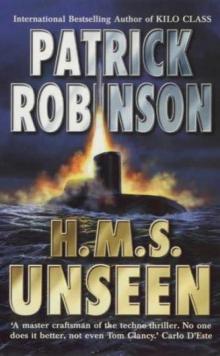 H.M.S. Unseen am-3
H.M.S. Unseen am-3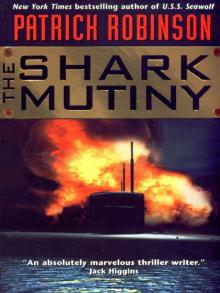 The Shark Mutiny (2001)
The Shark Mutiny (2001)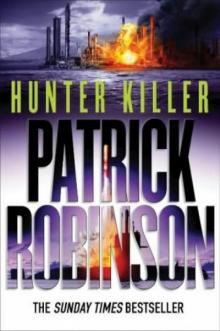 Hunter Killer am-8
Hunter Killer am-8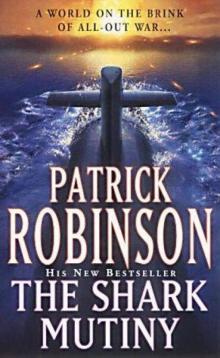 The Shark Mutiny am-5
The Shark Mutiny am-5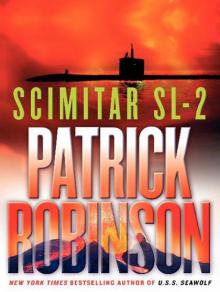 Scimitar SL-2
Scimitar SL-2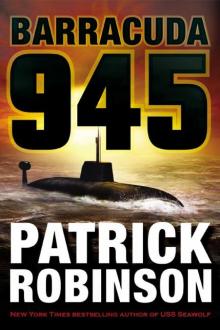 Barracuda 945 am-6
Barracuda 945 am-6 Hunter Killer
Hunter Killer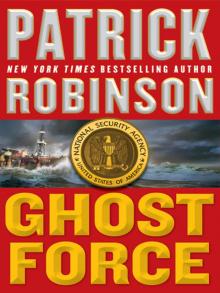 Ghost Force
Ghost Force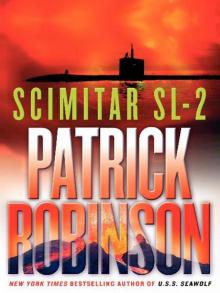 Scimitar SL-2 (2004)
Scimitar SL-2 (2004)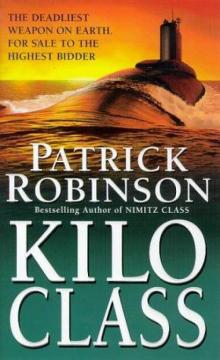 Kilo Class am-2
Kilo Class am-2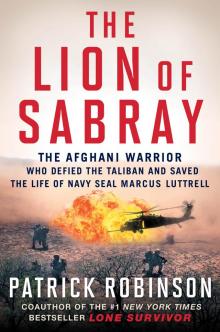 The Lion of Sabray
The Lion of Sabray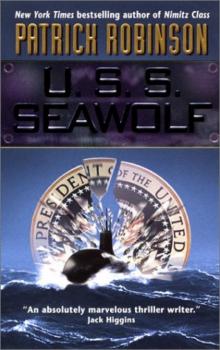 U.S.S. Seawolf am-4
U.S.S. Seawolf am-4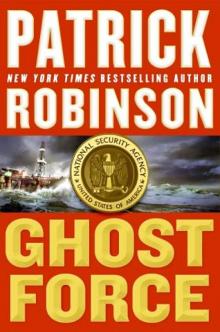 Ghost Force am-9
Ghost Force am-9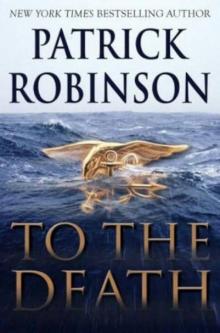 To the Death am-10
To the Death am-10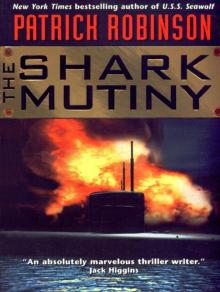 The Shark Mutiny
The Shark Mutiny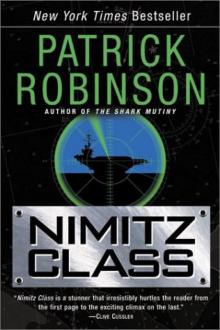 Nimitz Class am-1
Nimitz Class am-1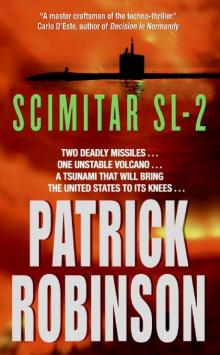 Scimitar SL-2 am-7
Scimitar SL-2 am-7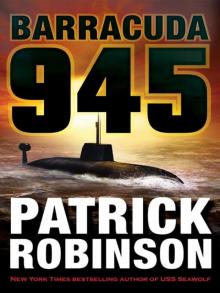 Barracuda 945
Barracuda 945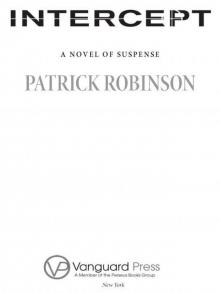 Intercept
Intercept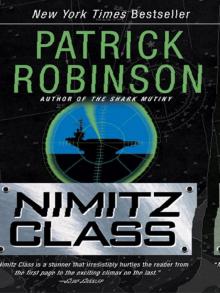 Nimitz Class (1997)
Nimitz Class (1997)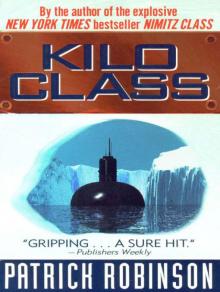 Kilo Class
Kilo Class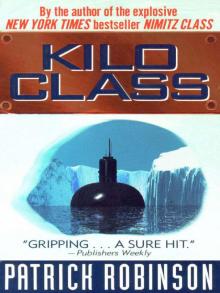 Kilo Class (1998)
Kilo Class (1998) Diamondhead
Diamondhead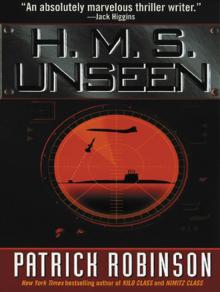 H.M.S. Unseen
H.M.S. Unseen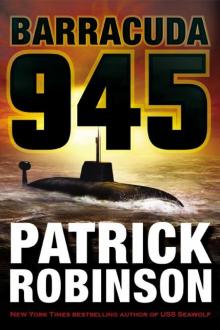 Barracuda 945 (2003)
Barracuda 945 (2003)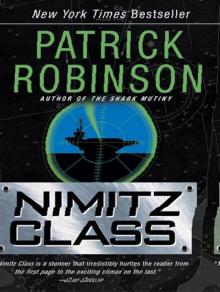 Nimitz Class
Nimitz Class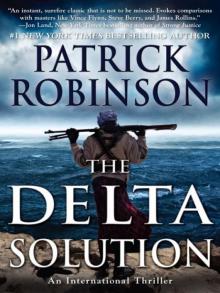 The Delta Solution
The Delta Solution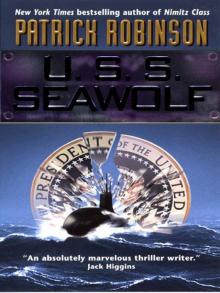 U.S.S. Seawolf
U.S.S. Seawolf